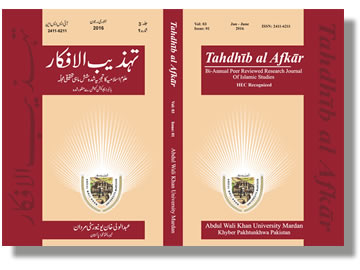ذخیرہ اندوزی سے متعلق اسلامی تعلیمات : ایک تحقیقی مطالعہ
Islamic teachings on hoarding: A research Study
Abstract
Islam is a religion of nature. The true spirit of Islamic teachings is that business should continue in a natural way, the balance between supply and demand should not be disturbed. This is because trade planning is done in the same way. But if there is a situation where the production of a commodity is less than the need of the society or the supply is less than the demand nationally and internationally, then there is no investment. The owner or trader buys the goods from the market and stores them or the goods are already in his warehouses but he withholds them despite the dire need and does not sell them in the market so that the demand increases and people are forced to meet basic needs. It is monopoly and hoarding to be forced to buy goods at very high prices against the natural law of business. This is done by those who are hard-hearted, hard-hearted, and exploitative and fill their coffers by taking unfair advantage of people's compulsions. It is based on the fact that Islam seeks economic development as well as moral, religious and spiritual instruction, without which it is not possible to establish a welfare state. Therefore, the acquisition of wealth in Islam It is not permissible to be unruly and to distinguish between halal and haraam. In order to keep the economy clean and free from monopolies, hoarding is prohibited in Islamic teachings. It is the responsibility of an Islamic government to intervene and stop this process. The need is to help the needy in such difficult situations by following Islamic teachings and not the necessities of life. Sell at a higher price.





